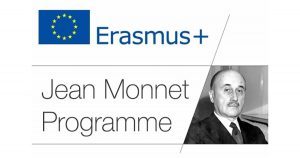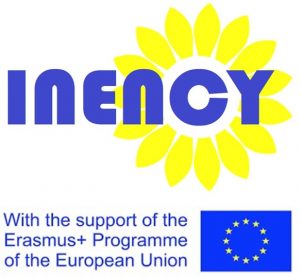Jean Monnet Module «Instruments of the EU Environmental Policy – INENCY»
 A considerable and rapidly growing portion of Ukrainian (UA) environmental policies is developed based on the EU experience. Although the EU environmental policy package is one of the strongest in the world, it works only if fully implemented and enforced, and for this, especially if using it outside the EU, advanced understanding of the EU policy context and policy instruments are essential. This problem is not explicitly recognised by national qualification frameworks in UA, and it is not addressed by curricula at most HEIs providing tertiary education in the field of environment.
A considerable and rapidly growing portion of Ukrainian (UA) environmental policies is developed based on the EU experience. Although the EU environmental policy package is one of the strongest in the world, it works only if fully implemented and enforced, and for this, especially if using it outside the EU, advanced understanding of the EU policy context and policy instruments are essential. This problem is not explicitly recognised by national qualification frameworks in UA, and it is not addressed by curricula at most HEIs providing tertiary education in the field of environment.
The overall aim of INENCY is therefore to develop and disseminate a module focusing on gaps in educational provision as regards EU environmental & sustainability policy instruments.
This will be achieved through the objectives:
Capitalising on consulting experience of the faculty members (in particular in EIA, environmental permitting, forest certification, climate adaptation & mitigation) and on findings of UA environmental NGOs active in the field of compliance research, and based on new research, INENCY will provide KKNU students (and students of other HEIs, as they will be reached by project dissemination) with an overview of EU environmental policy instruments in the context of UA, with in-depth analysis of EU and UA best practices. Such contents are entirely new to students (and faculty) of most UA HEIs offering environmental studies, and the opportunity to understand national environmental policy and management practices from the European perspective would help them in their professional life, especially in the light of expected further convergence of UA legislation towards the EU. Likewise, being able to offer such courses, KKNU will increase visibility and attractiveness of its BSc and MSc programs in environmental management, environmental safety and forestry.
In KKNU elements of EU studies are offered only to the students of management, law and economics. Although the Department of Urban and Regional Environmental Systems is actively involved in transboundary EU projects addressing water resources and technology, and also benefited from an EU Tempus projects, the EU dimension is not yet articulated well in its curricula and research. INENCY research, dissemination activities and new courses will enhance profile and visibility of the Department, and build capacity for better curriculum development, research and teaching through experience of joint research, teaching and publications with EU faculty, who will participate in all the INENCY activities, and whose teaching load and research leadership will be gradually overtaken by the KKNU resident faculty.
 The European Commission support for the production of this publication does not constitute endorsement of the contents which reflects the views only of the authors, and the Commission cannot be held responsible for any use which may be made of the information contained therein.
The European Commission support for the production of this publication does not constitute endorsement of the contents which reflects the views only of the authors, and the Commission cannot be held responsible for any use which may be made of the information contained therein.